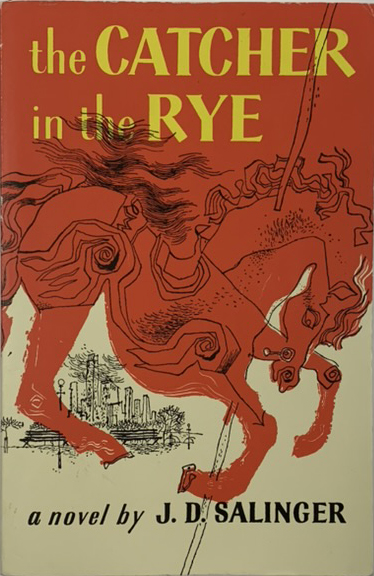This issue, I’ll be providing my opinions on two American classics!
“The Catcher in the Rye” by J.D. Salinger
Holden Caulfield is a confused, scared teenage boy who runs away from his boarding school to New York City and does not deal with his grief in a healthy way. J.D. Salinger was among the first to write a well-known trope: “misunderstood bad boy.” Salinger also makes the choice of glorifying self-harm through Holden’s smoking and alcohol abuse. Holden expresses misogyny by believing that every woman should be like Jane Gallagher (with whom he never has a single conversation in the book). Since no others meet his standards, all girls are “phony.” However, to Salinger’s credit, Holden was far ahead of his time in how he symbolizes that societal norms make it difficult for masculinity to be disentangled from abuse of oneself or others. I know 9th graders are required to read “The Catcher in the Rye,” but this is not a critique of the curriculum. At the very least, if I can’t say I loved the book, I can admit that “The Catcher in the Rye” has important messages and an interesting take on the challenges of adolescence.
“The Perks of Being a Wallflower” by Stephen Chbosky
This book follows Charlie in his first year of high school. He is suffering from the effects of his best friend, Michael, commiting suicide for reasons unknown to Charlie. Throughout the book, Stephen Chbosky displays that when emotions are repressed, they can lead to further danger. Like Holden in “The Catcher in the Rye,” through Chbosky’s characterization of the other male characters, he shows how difficult it is to detach masculinity from violence. Charlie in particular struggles with these conceptions of masculinity. Charlie’s tale is told entirely through letters, giving the reader a more personal understanding of Charlie. He sends these letters to a “friend” whose name or identity the reader never learns. All in all, “The Perks of Being a Wallflower” is a well-written, dark tale of adolescence that emphasizes the value of friendship and the impact of abuse.
These are two great books about adolescence and innocence (as well as loss thereof). It is important, however, to note that they explore difficult concepts such as suicide, drug use and sexual assault. If any of these things make you at all uncomfortable, don’t read these books and seek help from a trusted adult.





